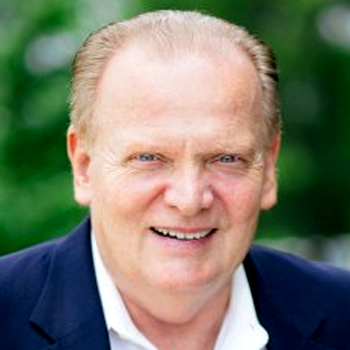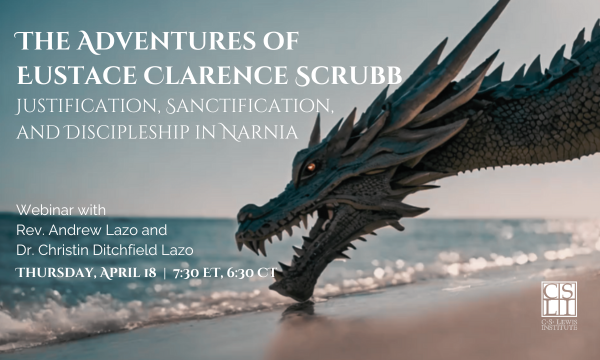Back to series



An Interview with: Rev. Eugene Peterson
Click here to open a Print - Friendly PDF
Art Lindsley: How did you come to faith in Christ?
Eugene Peterson: I grew up in a Christian home and was immersed in a family of belief and obedience from the time I was born, and I made my own decision in early adolescence. But, it was more like saying yes to the yes that was already there. So, I was fortunate in that way.
Art Lindsley: What are the top three needs of the Church today?
Eugene Peterson: One is that the church must recover its identity as a unique people of God. We have become so acculturated to the American culture that we have virtually lost our baptismal identity; it’s so important that we recover our distinctive identity as a people of God and not as a people of American religion.
Second would be—and it is related to the first— that we have to recover our sense of what leadership is. We have shaped our leadership ministries to a success-oriented culture obsessed with image and power and influence. We don’t find any of these qualities in our Scriptures or the best parts of our history. We have let the culture define what it means to be a leader in a way that is diametrically opposed to everything that is revealed in Jesus and our Scriptures.
The third thing is—and these all hang together in a sense—that we have to be much more attentive to the way in which we do things. What we have been doing in America, particularly in the last fifty to sixty years, is that we have kept the evangelical goals of the Gospel, conversion, evangelism, mission, but we have used the means of our culture. Jesus is the way as well as the truth, but we have continuously given up the way Jesus did it; we have kept the goals and ends, but chosen our own means.
Art Lindsley: Which is the most important book you have written and why?
Eugene Peterson: That’s like asking which of my children is most important. I think my book called Working the Angles, which was my attempt to recover pastoral identity—that our identity comes out of Scripture and not out of culture. One of the things that I have cared about a lot has been a recovery of pastoral identity that is organically developed out of the Scriptures. In Working the Angles, I think I did that as clearly as it is possible for me to do. I have written several books having to do with pastoral vocation, but that is probably the most central of the several books I have written on pastoral vocation.
Art Lindsley: What are the top five most influential books in your life other than the Bible?
Eugene Peterson: It would be better for me to answer with names of authors. Alexander Whyte, a Scottish Presbyterian pastor, writer, and teacher, has more than anybody else given me a sense of what it means to live out this pastoral vocation.
Dostoyevsky in his novels explored for me the nature of the soul and salvation and shaped my imagination in relationship to my congregation. Wendell Berry, for me, has been the most incisive Christian prophetic voice in America today. Baron Frederich Von Hugel has influenced me more than anyone else in understanding spiritual formation and spiritual direction. He was a layman with an incredible focus and intuition of our formation in Christ. I think you could almost say that he was the Jim Houston of a hundred years ago. But, I
ran into Von Hugel long before I ran into Jim, so he is the one who influenced me the most.
And the fifth would be Charles Williams. Williams was one of the Oxford community that included Lewis, Tolkein, Sayers, and his imaginative grasp of the way good and evil are worked out in a Christian drama, or maybe I should say worked out in a world in which the gospel is the central reality, profoundly informed the way I live and work. Sharp little insights, not least from the Narnia books, would return and keep me clear-headed.
Art Lindsley: How do you shape your devotional life?
Eugene Peterson: I guess I would say that my life of prayer is shaped basically from the Psalms. The Psalms are my prayer book and trained me in the vocabulary and the rhythm of attentive responsiveness to God. The Psalms are coupled with Sabbath keeping, ordering the way I think about and live in time. So, Psalms and Sabbath together shape my life of prayer and spirituality.
Art Lindsley: What advice would you give to believers who want to impact the culture for Jesus Christ?
Eugene Peterson: I think I would question a little bit wanting to make an impact on the culture. I’m not sure that’s what we should be trying to do. The
temptation in trying to make an impact on the culture is that we pick our own ways to do it—the thing I was talking about earlier in terms of using the wrong way to do the right thing. The way to make an impact on the culture for the Gospel is to follow Jesus, and that doesn’t seem like it’s making much of an impact. We make a Gospel impact on the culture by living obedient lives of love and witness. Christians have a long track record of failure in this: We decide we want to make an impact, then we mount a crusade, set a course of action and kill a lot of people or bully precious souls made in the image of God and use propaganda and impersonal, manipulative means to achieve what we have decided is a Gospel goal. We try to do the work of Christ while ignoring the way of the cross. So, we are back to living humbly and doing justice and there’s nothing very dramatic about that. And, it doesn’t look like it’s making a big impact. As you can see, I am pretty skeptical of big answers or big solutions.
Eugene Peterson was born in E. Stanwood, Washington, but soon after, his family moved to Kalispell, Montana, where he grew up. He received his B.A. (Philosophy) from Seattle Pacific University, S.T.B. from New York Theological Seminary, and M.A. in Semitic Languages from Johns Hopkins University.
Ordained in the Presbyterian Church (USA), he has served churches in White Plains, New York, and Bel Air, Maryland, where he was organizing pastor of a new church, Christ Our King Presbyterian Church, serving as pastor for 29 years.
Eugene’s teaching career has included New York Theological Seminary, New York, New York; St. Mary’s Seminary, Baltimore, Maryland; Fuller Seminary, Pasadena, California; New College Berkley, Berkley, California; Pittsburgh Theological Seminary, Pittsburgh, Pennsylvania; and Regent College, Vancouver, B.C. He served as the James M. Houston Professor of Spiritual Theology at Regent and retains the position of Professor Emeritus of Spiritual Theology.
He has authored numerous books, including Run With the Horses, A Long Obedience in the Same Direction: Discipleship in an Instant Society, Subversive Spirituality, Five Smooth Stones for Pastoral Work, and, perhaps most wellknown, The Message, a contemporary rendering of the Bible in everyday language. In June, The Message will be released in a single volume containing both Old and New Testaments.

Arthur W. Lindsley
Senior Fellow for Apologetics, CSLI Arthur W. Lindsley is the Vice President of Theological Initiatives at the Institute for Faith, Works, & Economics. He has served at the C.S. Lewis Institute since 1987 both as President until 1998 and currently as Senior Fellows for Apologetics. Formerly, he was director of Educational Ministries at the Ligonier Valley Study Center, and Staff Specialist with the Coalition for Christian Outreach. He is the author of C.S. Lewis's Case for Christ, True Truth, Love: The Ultimate Apologetic, and co-author with R.C. Sproul and John Gerstner of Classical Apologetics, and has written numerous articles on theology, apologetics, C.S. Lewis, and the lives and works of many other authors and teachers. Art earned his M.Div. from Pittsburgh Theological Seminary and a Ph.D. in Religious Studies from the University of Pittsburgh. COPYRIGHT: This publication is published by C.S. Lewis Institute; 8001 Braddock Road, Suite 301; Springfield, VA 22151. Portions of the publication may be reproduced for noncommercial, local church or ministry use without prior permission. Electronic copies of the PDF files may be duplicated and transmitted via e-mail for personal and church use. Articles may not be modified without prior written permission of the Institute. For questions, contact the Institute: 703.914.5602 or email us.
COPYRIGHT: This publication is published by C.S. Lewis Institute; 8001 Braddock Road, Suite 301; Springfield, VA 22151. Portions of the publication may be reproduced for noncommercial, local church or ministry use without prior permission. Electronic copies of the PDF files may be duplicated and transmitted via e-mail for personal and church use. Articles may not be modified without prior written permission of the Institute. For questions, contact the Institute: 703.914.5602 or email us.
-
Recent Podcasts
The Side B Stories – Dr. James Tour’s story
by Jana Harmon, James Tour on April 12, 2024From a secular Jewish home, scientific scholar and...Read More
-
Why are Christians so Bad?
by Paul Joen on April 5, 2024
-
Questions That Matter Podcast – Dai Hankey and Gospel Hope for Weary Souls
by Randy Newman, Dai Hankey on April 5, 2024
-
Recent Publications
Isn’t Morality Relative?
by Christopher L. Reese on April 1, 2024It is widely accepted in the Western world...Read More
-
Do Muslims and Christians Worship the Same God?
by Andy Bannister on March 1, 2024
-
Artificial Intelligence and Its Impacts on Humanity
by John Lennox on February 13, 2024
0
All Booked
0.00
All Booked
0.00
All Booked
21934
GLOBAL EVENT: The Adventures of Eustace Clarence Scrubb (CSLI-Atlanta & CSLI-Chicago) 7:30PM ET/ 6:30PM CT
https://www.cslewisinstitute.org/?event=global-event-the-adventures-of-eustace-clarence-scrubb-csli-atlanta-csli-chicago-730pm-et-630pm-ct&event_date=2024-04-18®=1
https://www.paypal.com/cgi-bin/webscr
2024-04-18

Next coming event
Days
Hours
Minutes
Seconds
GLOBAL EVENT: The Adventures of Eustace Clarence Scrubb (CSLI-Atlanta & CSLI-Chicago) 7:30PM ET/ 6:30PM CT
On April 18, 2024 at 7:30 pm Virtual Online EventSpeakers

Arthur W. Lindsley
Senior Fellow for Apologetics, CSLI
Team Members




